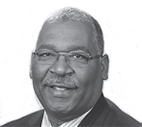
DANIEL McCLOUD
“We die. That may be the meaning of life. But we do language. That may be the measure of our lives.”
This quote is from Nobel Prize-winning author Toni Morrison’s Nobel Prize acceptance speech given on Dec. 7, 1993. Morrison was a prolific and critically acclaimed writer up to her death on Aug. 5, 2019. Among her most well-known of her many novels were The Bluest Eye and Beloved. For the latter of which she won the Pulitzer Prize. Toni Morrison was a scholar and artist who realized early on the power of language, of words.
In our current political divisive environment, language and words matter more than ever. Unfortunately, too often, the language used to enlighten and inform, bridge the divides and promote empathy and understanding are overshadowed.
However, there can still be found works of language that seek to provide context for healing. One such book that is a must-read is Caste: The Origins of Our Discontent, by Isabelle Wilkerson. Caste is a follow-up to her ground-breaking work, The Warmth of Other Suns: The Epic Story of America’s Great Migration, that chronicles the movement of millions of African Americans from the Jim Crow south to the America’s North and West. In Caste, Wilkerson seeks to dig deeper into the genesis of racism in America by identifying and defining the well-established social and economic hierarchy established by the dominant groups. The text looks beyond race and class and focuses on what she describes as a “human ranking.” The text draws parallels between these systems of human rankings in America, India, and Nazi Germany.
One of the most eye-opening aspects of the book details how Nazi Germany studied the Jim Crow caste system in America for the design of their system of oppression used to persecute the Jewish people. In sobering detail, Wilkerson provided examples of how those at the bottom of the caste systems remain at the bottom and those at the top stay at the top, by sets of rules, laws, and expectations designed to maintain the caste system.
In seeking to provide a rationale for the continued existence of the caste system, Wilkerson(2020, p. 380) describes it in this way:
A caste system persists in part because we, each and every one of us, allow it to exist-in large and small ways, in our everyday actions, in how we elevate or demean, embrace or exclude, on the basis attached to people’s physical traits. If enough people buy into the lie of the natural hierarchy, then it becomes the truth or is assumed to be.
This passage brings us back to language; these words perfectly describe each of our responsibility to break the caste cycle, if that is our intent. It speaks to how we define and measure our lives. It describes personal accountability. Will our lives be measured by conformity and acceptance of the status quo, regardless of the negative consequences to entire groups of people. It speaks to our humanity and how history will remember us.
Wilkerson, I. (2020). “Caste: The Origins of Our Discontents.”

Recent Comments